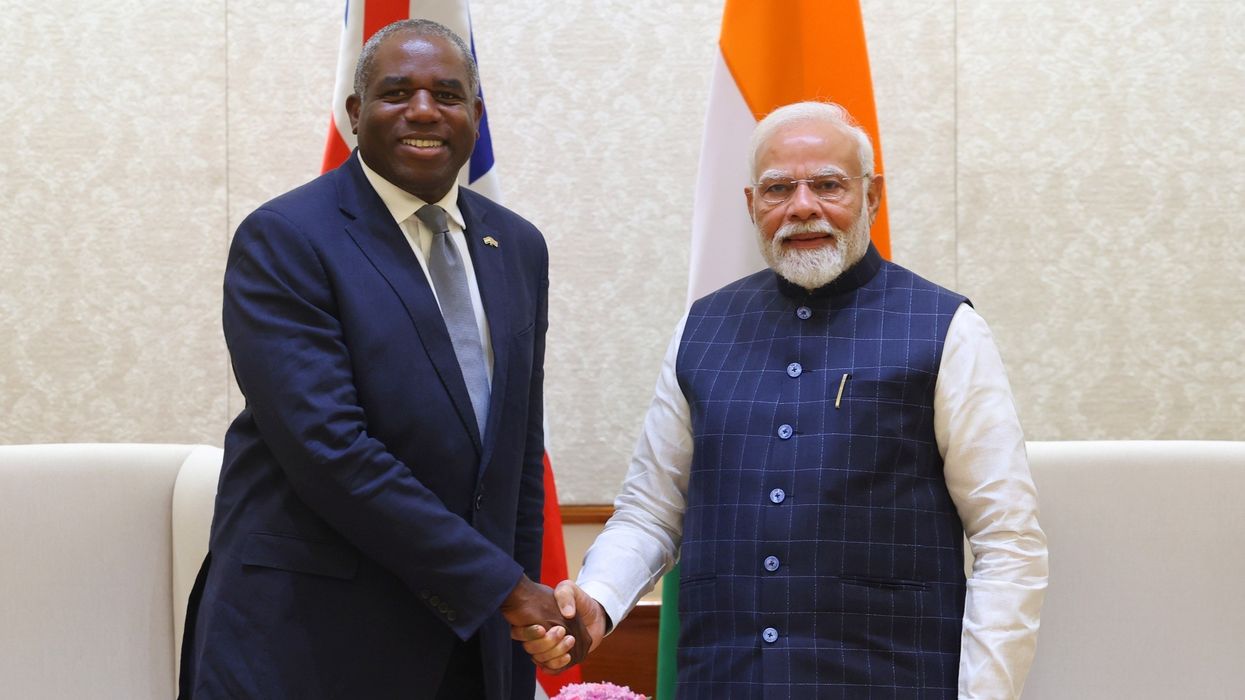INDIAN prime minister Narendra Modi on Saturday underlined the need for decisive international action against terrorism and those supporting it during a meeting with foreign secretary David Lammy. Lammy expressed support for India’s position and strongly condemned the Pahalgam terror attack.
According to a statement from the prime minister’s office, Modi expressed satisfaction at the successful conclusion of the India-UK Free Trade Agreement (FTA) and Double Contribution Convention. He appreciated the constructive engagement by both sides that led to this outcome.
Modi welcomed the growing momentum in bilateral ties and said he was satisfied with the deepening of the India-UK Comprehensive Strategic Partnership. He also welcomed continued collaboration under the Technology Security Initiative and noted its potential to shape trusted and secure innovation ecosystems.
Lammy conveyed the UK’s interest in further enhancing cooperation with India across key sectors, including trade and investment, defence and security, technology, innovation, and clean energy. He expressed confidence that the FTA will unlock new economic opportunities for both countries.
The two leaders also exchanged views on regional and global issues. The statement added, “The UK foreign secretary strongly condemned the Pahalgam terror attack and expressed support for India's fight against cross-border terrorism. PM Modi underscored the need for decisive international action against terrorism and those who support it.”
Thank you Prime Minister @narendramodi for your warm welcome to India. Building on the free trade agreement between our great countries, we will continue working together to deepen our partnership, celebrate our unique living bridge, and deliver growth and security. pic.twitter.com/UbPXRey4Wn
— David Lammy (@DavidLammy) June 7, 2025
Separately, Lammy held talks with India's external affairs minister S Jaishankar. In his opening remarks, Jaishankar said India expects its partners to understand its “zero tolerance” policy against terrorism. “We will never countenance perpetrators of evil being put on par with its victims,” he said.
Lammy arrived in New Delhi on Saturday morning on a two-day visit aimed at reviewing various aspects of the strategic partnership between the two countries.
Speaking to Reuters after the meeting, Lammy said Britain and India discussed expanding their "counter-terrorism" collaboration following recent tensions between India and Pakistan. Lammy is the highest-profile western official to have visited both New Delhi and Islamabad since the two countries agreed to a ceasefire last month after their worst fighting in nearly 30 years.
The latest tensions began in April after the killing of 26 men in Indian Kashmir, which New Delhi blamed on terrorists backed by Pakistan. Islamabad denied the charges. India then attacked what it described as “terrorist infrastructure” in Pakistan, prompting escalation until a ceasefire was agreed on May 10.
“We want the situation to be maintained, but of course we recognise fragility, particularly in the backdrop of terrorism, terrorism designed to destabilise India,” Lammy said in an interview at the British high commissioner’s residence in New Delhi. “We are keen to continue to work with our Indian partners on counter-terrorism measures.”
He said he discussed the next steps with both Modi and Jaishankar but did not provide further details.
Last year, India and the UK discussed cooperation on combating the financing of terrorism, law enforcement and judicial collaboration, and information sharing.
Lammy also said the two countries discussed strengthening trade ties. The FTA negotiations were concluded early last month.
“I know that prime minister Keir Starmer is very much looking forward to coming to India very soon to sign the free trade agreement,” Lammy said. “There is so much that our two nations can continue to do together.”
(With inputs from agencies)





